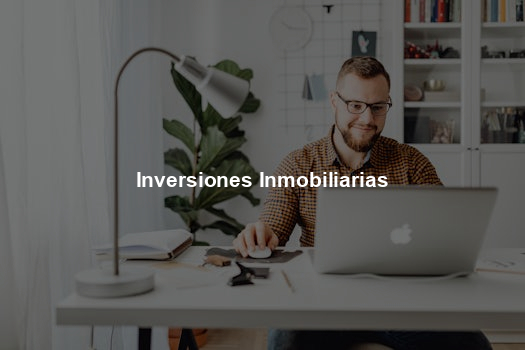The Bolsa de Valores de Caracas, commonly referred to as BVC, is a stock exchange in Venezuela regulated under Venezuelan Capital Markets Law that also offers brokerage services.
Recent events in Venezuela have created an economic crisis which threatens its stock exchange (bolsa). Hyperinflation, sanctions and shortages have made life increasingly difficult for investors.
Origins
La Bolsa de Valores de Caracas (BVC) is an investment market which makes available to investors 31 titles from 21 companies, such as Products EFE, National Credito Bank (NCB), Cantv and Ron Santa Teresa – providing investors with competitive investment returns and providing satisfactory returns for shareholders.
At its inception, this institution was known simply as «Bola de Comercio de Caracas,» as only the Codigo de Comercio allowed for intermediation centers to exist. Following approval of this inaugural Ley, BVC changed to an anonymous society with stock traded in an established stock market to provide transparency and efficiency within an effective regulatory environment.
Trust is essential in any successful investor-Board of Values relationship. An investor must go to one of the member houses where their company is being directed before communicating their amount of titling purchases and sales as well as operating method (short or long term).
Regulations
The Caracas Stock Exchange is overseen by the National Securities Commission, who establishes rules and standards that aim to uphold market integrity while discouraging fraud or manipulation. Furthermore, this platform allows foreign investors to enter Venezuelan economic development.
Foreign investments have allowed multinational telecommunications companies such as Movistar and Digitel to establish themselves in Venezuela through foreign investments, providing essential services to Venezuelan consumers as well as contributing to its economy.
As well as its regulations, the BVC also implements policies and procedures designed to foster investor confidence in its market. This includes installing surveillance systems to detect suspicious activities and enforce compliance standards. Furthermore, it publishes daily market statistics online as well as large circulation newspapers; monthly, semiannual, and annual reports detailing its activities can also be found here.
Trading hours
The BVC is one of the oldest stock markets in Latin America and one of the first fully electronic markets established since February 1992 when a state-of-the-art trading system developed by Vancouver Stock Exchange and TCAM known as SATB was put into effect.
The trading volume on BVCC remains relatively modest; however, its market has experienced consistent growth over the last year. Furthermore, this bourse is home to four new private investment funds including Impulsa Agronegocios, PC-IBC Fondo Mutual de Inversion Cerrado, Fivenca Fondo de Capital Privado and Pivca (Promotora de Inversiones y Valores).
The BVCC offers an online trading platform known as Telepregon that is also accessible to traders around the world. Telepregon provides several markets for trading equities, money market instruments, fixed income securities, exchange-traded funds and derivatives. Furthermore, an international trading board operates between 9:30 am and 4:00 pm local time; financial values may only become available after purchasing the report. Based in Caracas, Venezuela with its signature index being Indice Bursatil de Capitalizacion listing stocks of companies operating within Venezuela as its most notable index listing stocks of companies from that country’s stock exchange.
Trading instruments
The Bolsa de Valores de Caracas (BVC) is a stock exchange located in Caracas, Venezuela’s capital city. A member of the Latin American Federation of Stock Markets, it provides operations for purchasing and authorized sales of securities according to Capital Marketing Laws as well as facilities for issuing debt instruments.
BVC is one of the smallest stock markets in Latin America and currently lists about 60 stocks. Its share price index, IBC, measures the value of Venezuelan company shares issued. Trades take place using bolivar soberano currency – Venezuela’s national currency.
In February 1992, the BVC introduced an advanced electronic trading system known as SIBE (Sistema Interactivo Bursatil Electronico). This allowed brokers to electronically exchange information and make transactions.
As well as the BVC, several other Venezuelan exchanges and private investment associations have emerged since. Impulsa Agronegocios, PC-IBC Fondo Mutual de Inversiones de Capital Cerrado, Fivenca Fondo de Capital Privado and Pivca (Promotora de Inversiones y Valores). All five registered investment companies help attract foreign investments into Venezuela’s local market.
Fees
Bolsa de Valores de Caracas (BVC) is Venezuela’s sole securities exchange, first established in 1947 and merging with another competitor in 1974. Electronic trading started on February 1992 at BVC and now includes both debt instruments and equity securities trading.
The exchange has attempted to attract international investors despite its limited capital resources; however, it remains unknown if they will find investors willing to take on risky ventures.
BVC also recently underwent a change to become a non profit civil corporation following Ecuador’s capital market law that restructured exchanges into non profit entities. Furthermore, this exchange is registered as part of Latin American Federation of Stock Markets as well as being registered at First Commercial Registry of Capital District in Ecuador. Financial data for this chart can be purchased separately; please reach out for more details!
